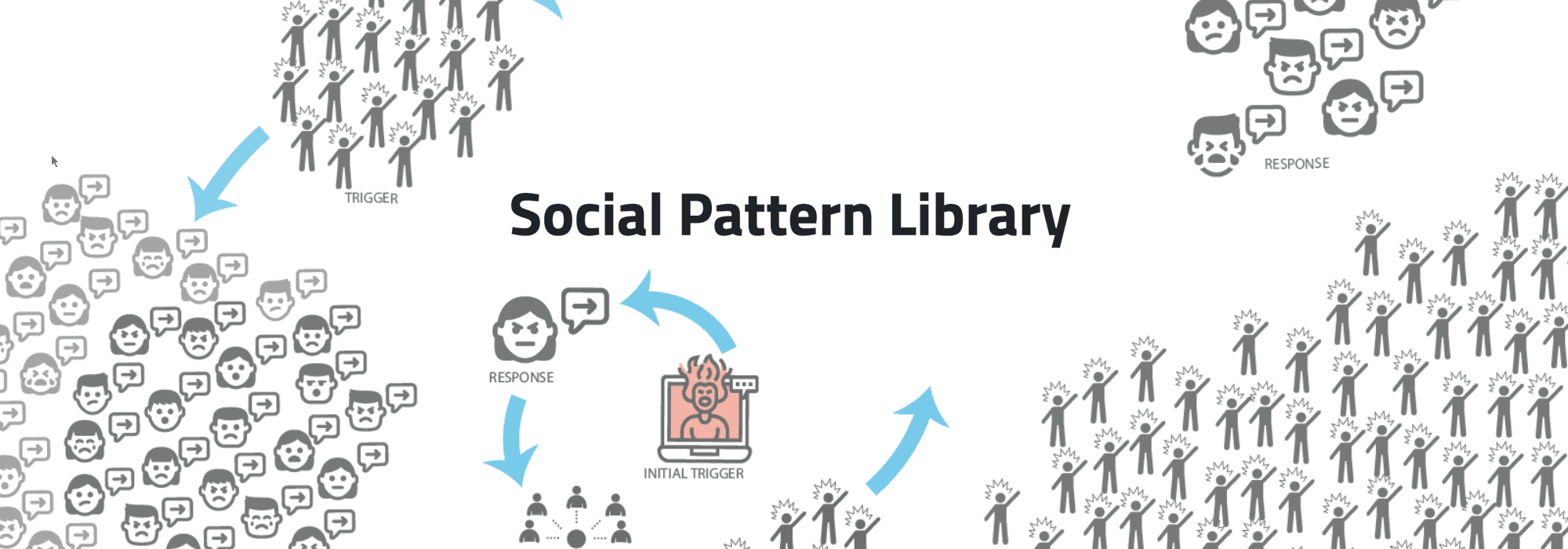The ADL Social Pattern Library is an anti-hate by design initiative providing a set of product recommendations for social media platforms to help combat online hate, disinformation and extremism.The library includes both visual and interactive examples for how social media platform designers might mitigate hate.
This pattern library is intended as a resource for social media interaction designers. It provides examples of interactive elements and components, described within a scenario, including:
- Messaging
- “Friction,” or a way to pause a user from making a rash comment or sharing a potentially harmful link
- Tools for muting or blocking other users
- Reminders sent to users about a platform’s terms of service or community guideline
Much like doors, windows and walls make up a room or house, such micro-interactions form the architecture of kinder, safer online social experiences. Our library makes recommendations for how such elements work to fight hate on platforms by guiding user interactions. We describe the interaction, show a video demonstrating how it could work, display screenshots of examples of the recommendation in action, when applicable, and share references that support the recommendation.
For example, if a user wants to share a link based on a provocative headline without having clicked the link, an anti-hate by designed system would pause and show the person a prompt asking if they would like to read the article first before sharing, as the article has been flagged as hateful or as misinformation. Research suggests slowing down users from sharing potentially harmful content works to help mitigate the spread of hate.
Creating a pattern library for design teams is quite common in technology companies, but is pioneering for a nonprofit organization like ADL. Our Center for Technology and Society (CTS) routinely advises social and online game platforms on ways they can improve their processes to enable victims of hate and harassment to report abuse, halt the spread of malicious and hateful content, and adjust policies in their terms of services and codes of conduct. This library is part of the next phase of that product work. It combines years of ADL research on hateful content with CTS’ technical and design expertise to create this new resource with the goal of creating more welcoming online spaces for all users.










